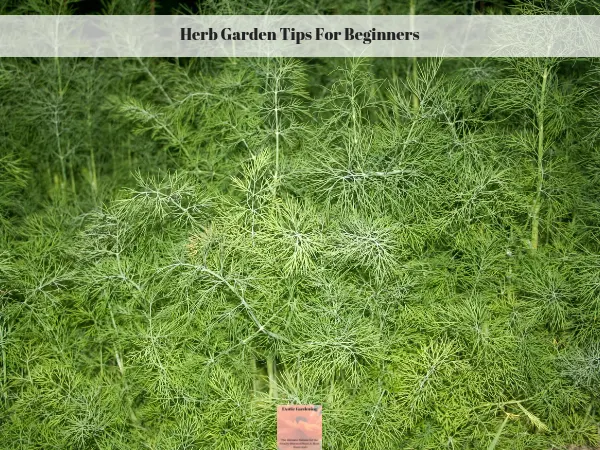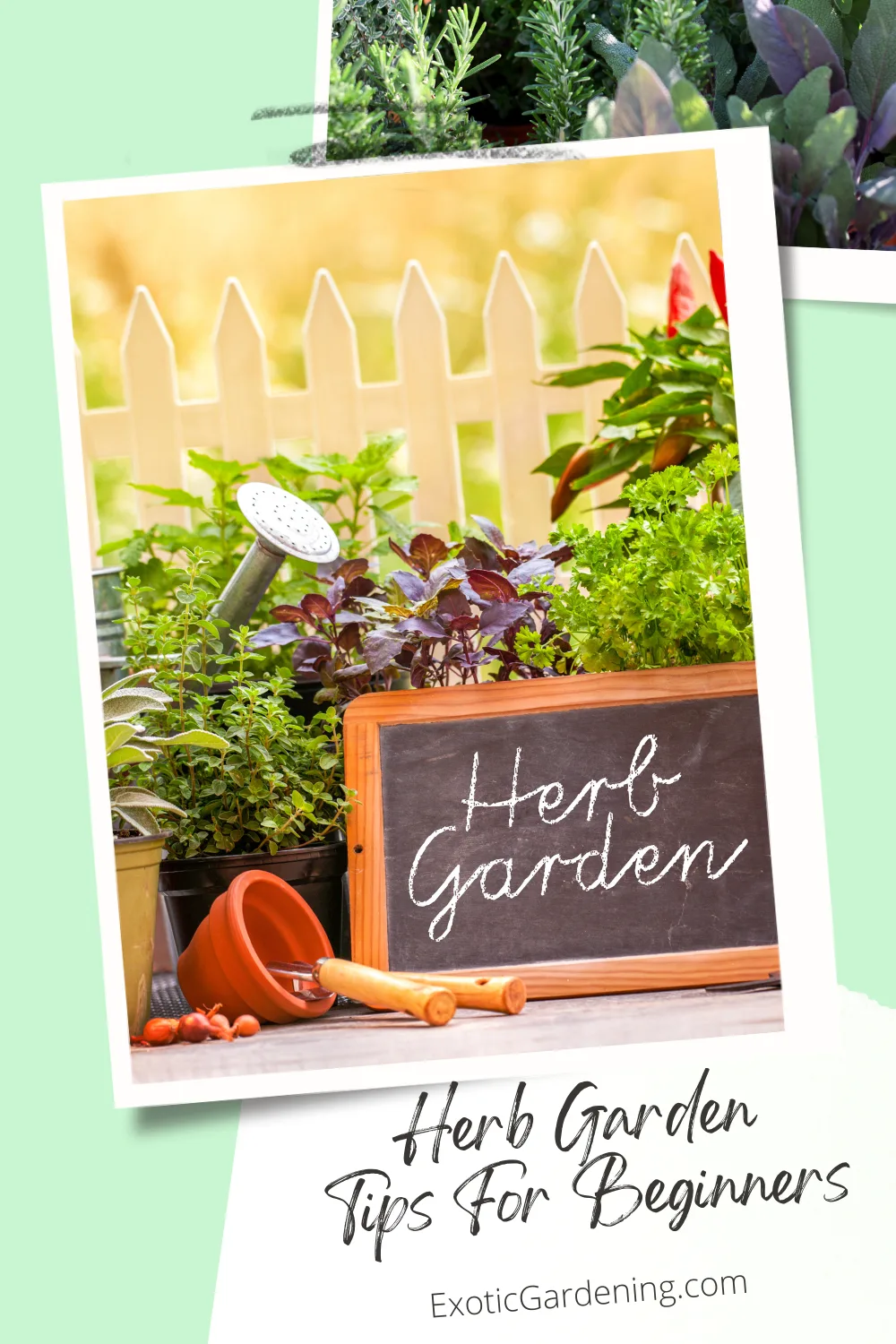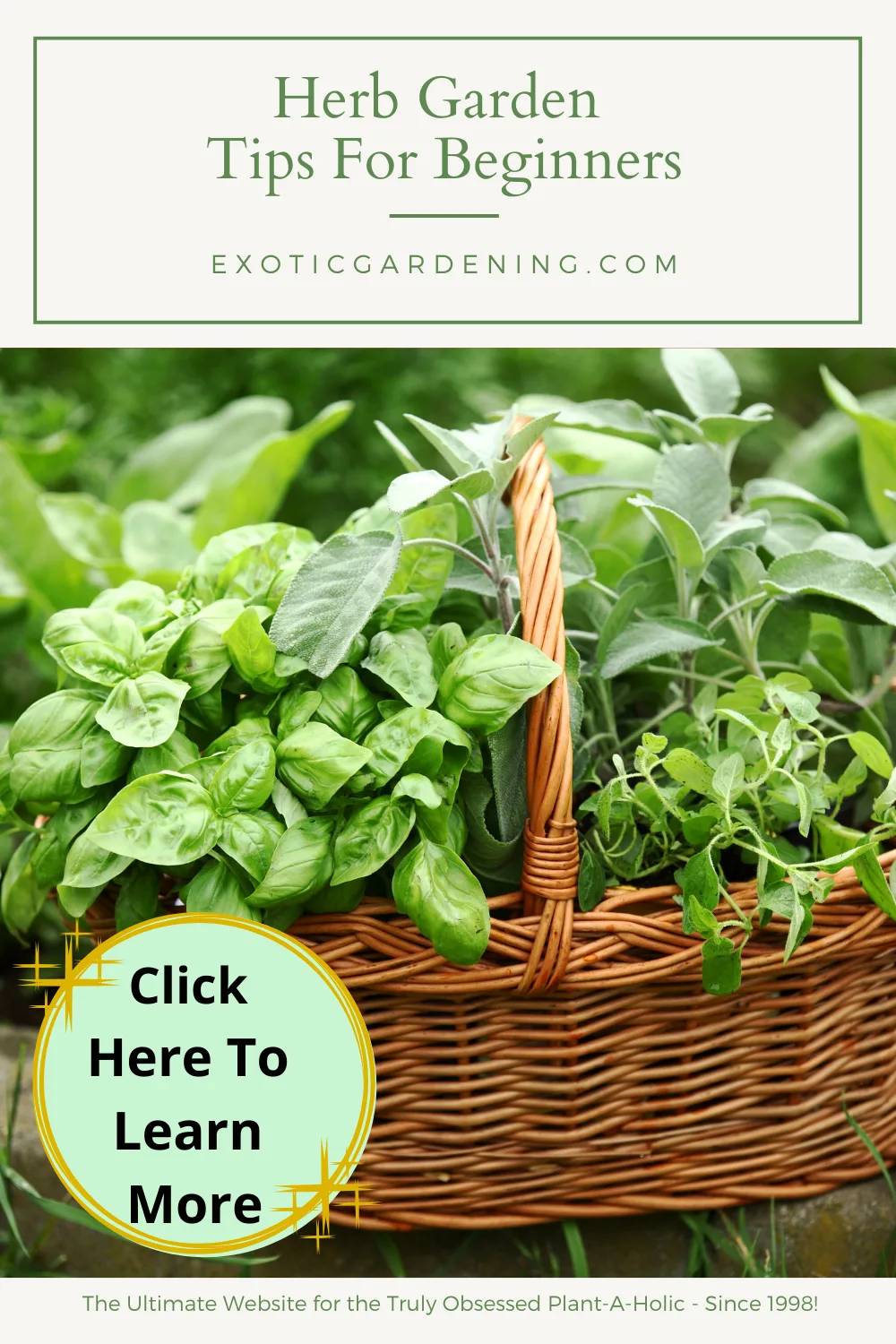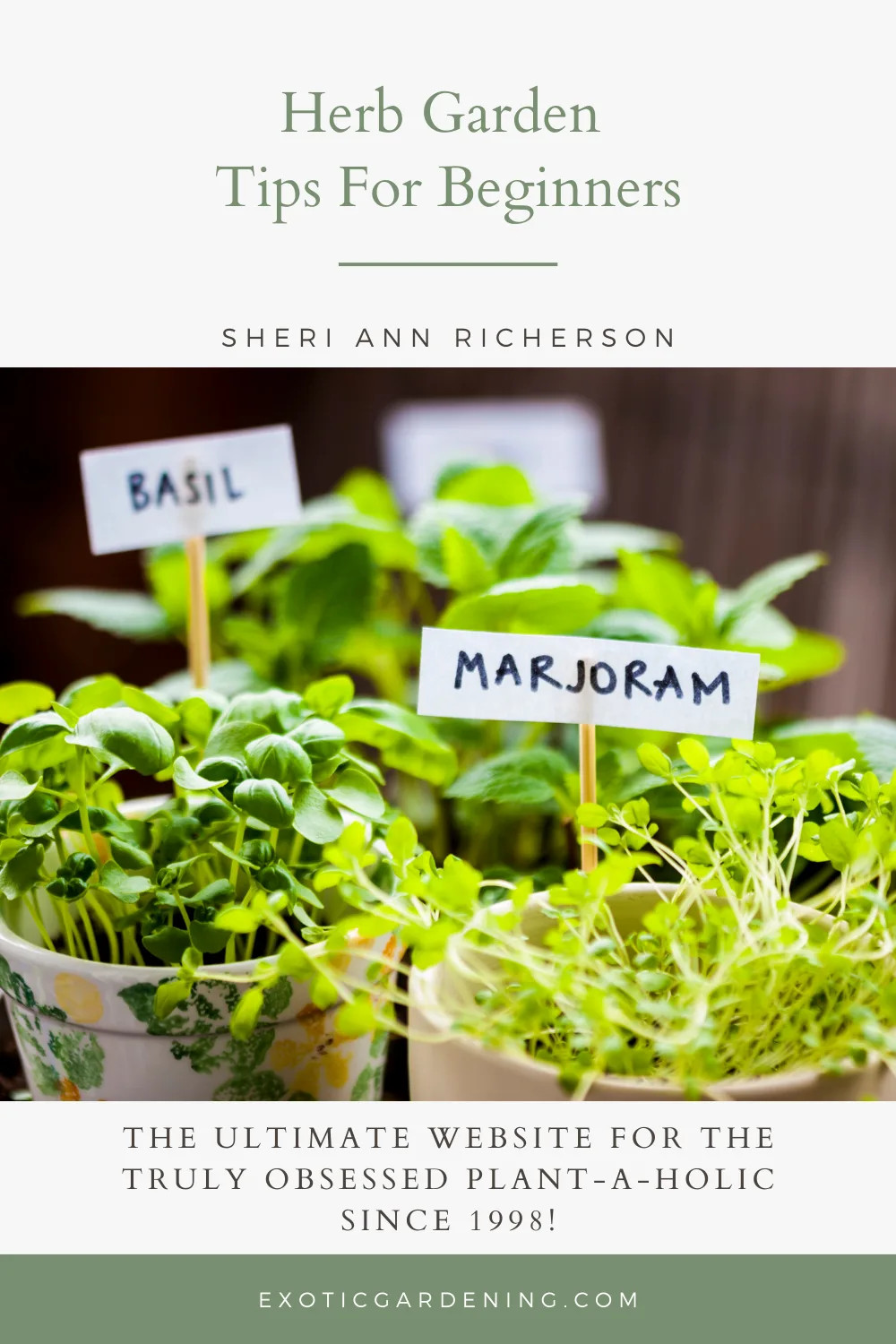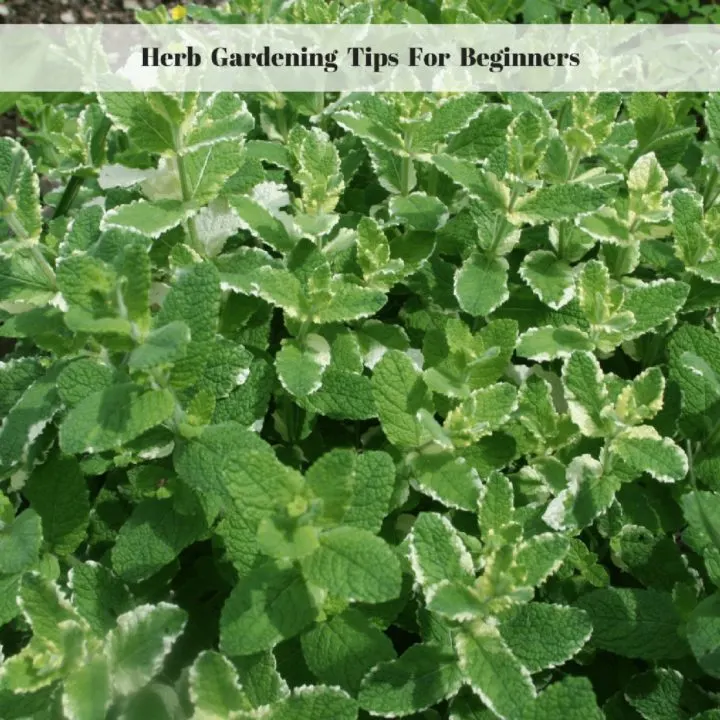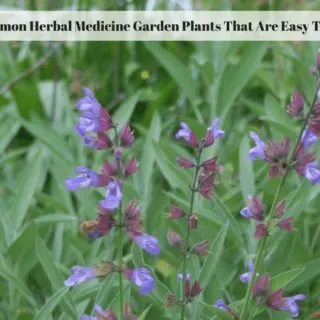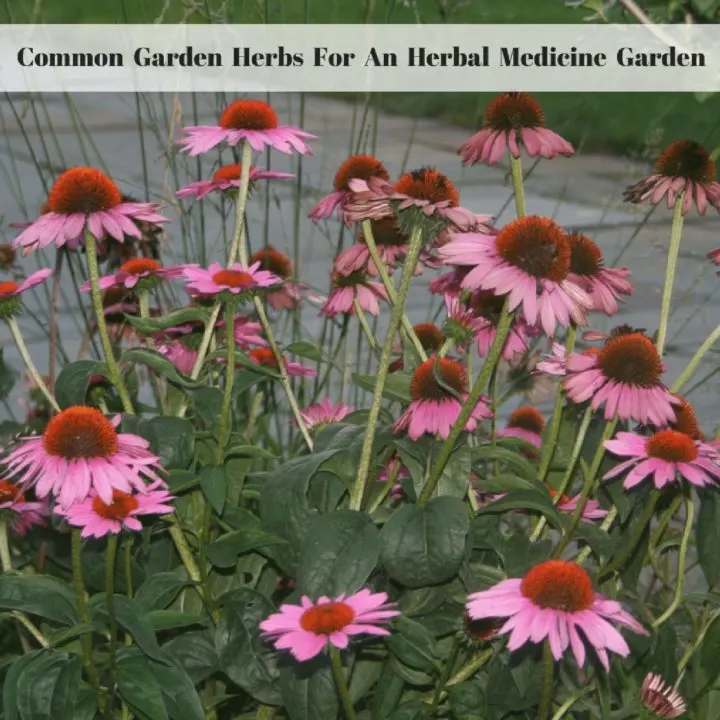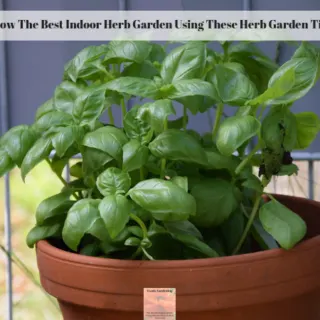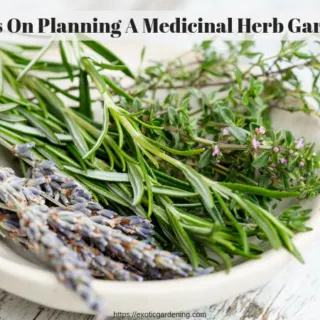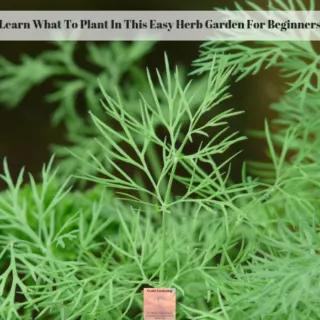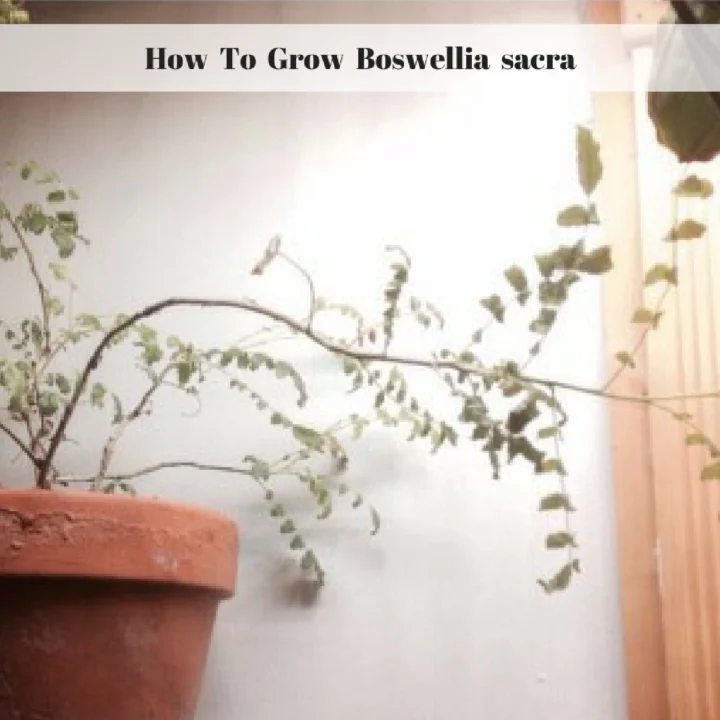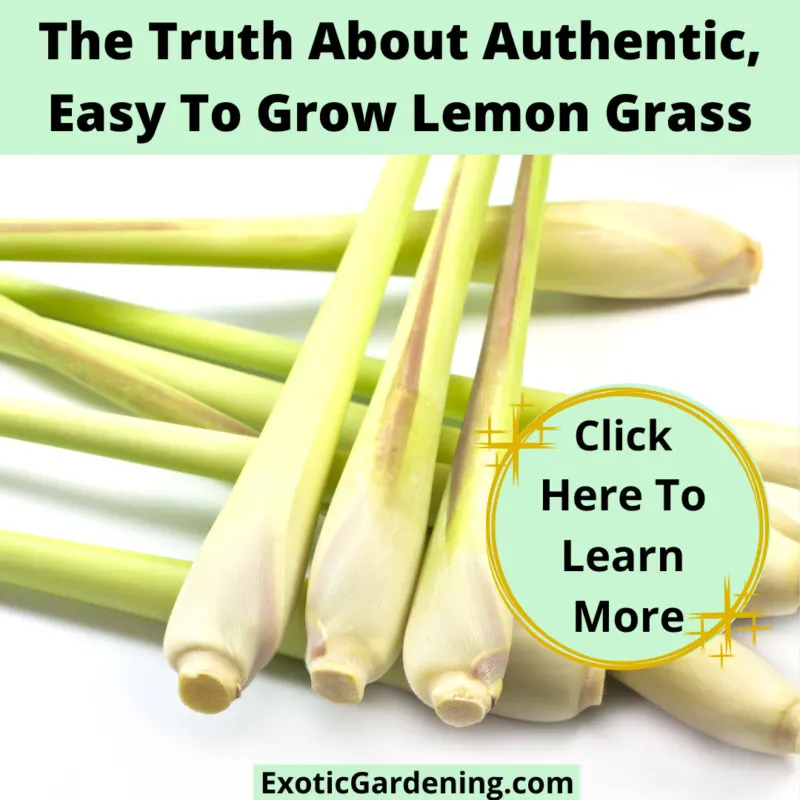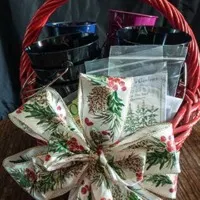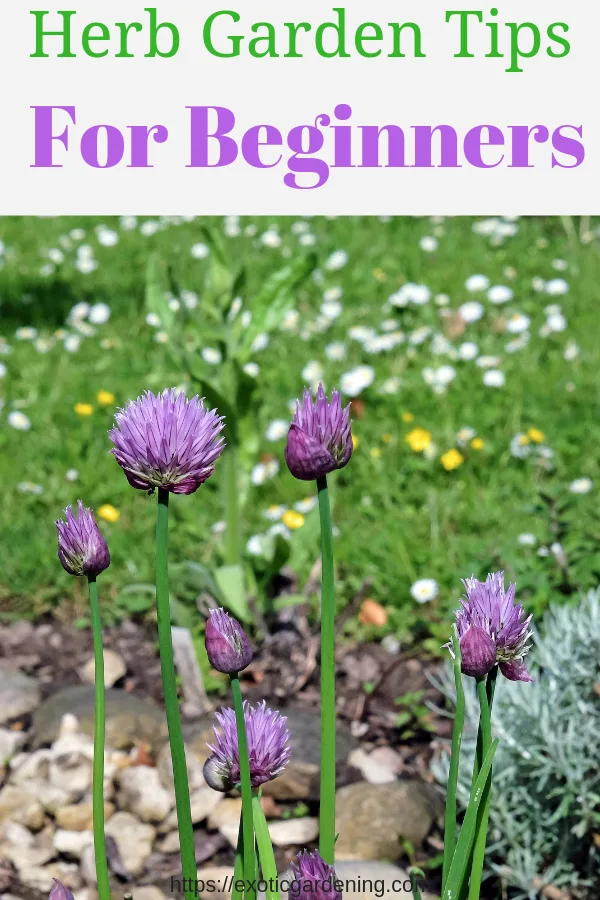The herb garden tips below include information on their preferred growing environment as well as ways to use the herbs once you harvest them.
The Growing Environment Preferred By Most Herbs
Herb culture refers to the preferred environment that an herb likes to grow in.
Herbs are adaptable to most climates, and most soil conditions.
However, it is best, with most herbs, to avoid areas with wet soil or soil with poor drainage.
While there are some herbs that prefer moist soil and even some that will grow in less than ideal conditions, most herbs prefer well drained soil.
Herbs grow well in containers, both indoors and out, so even gardeners without a yard to plant them in can successfully grow them.
Be sure the containers have good drainage so the roots do not sit in consistently moist soil which can cause them to rot.
How to Grow Herbs
Most herbs are easy to grow from seed.
Some herbs, such as mint, do not come true from seed.
While it is true you will still get some type of mint, you might not end up with exact variety you were hoping for.
Good herbs to start from seed are sage, basil, rosemary and cilantro.
Another option is to purchase herb plants or an herb garden kit.
Many herbs are very easy to start from cuttings or by digging and dividing a larger herb plant.
Many gardeners are more than happy to share the bounty of their herb garden with others.
Garden club plant sales are another place to look for starts of herb plants.
What To Look For When Purchasing Herbs
Before purchasing herb plants, take time to to smell the leaves before you buy them.
Some herbs naturally smell stronger than others.
Choose the herbs with the strongest smell.
Most herbs prefer six hours of sun per day, however in extremely hot climates, plant herbs where they will receive afternoon shade.
Annual Herbs
For best results, sow seeds of annual herbs, such as dill and basil, every few days throughout the gardening season.
Then replant in the spring, even if you allowed the seeds drop into your garden.
Remember that birds and other wild critters will eat some of that seed over winter and some of it will just not germinate, so planting extra is the only way to make sure you consistently have a successful harvest.
Once dill is established in your garden, it is likely to pop-up all over the place.
Remove the plants that you simply cannot tolerate and leave the rest.
Butterflies love dill and it is not uncommon to see eggs or caterpillars on dill plants, so plant enough for both you and the butterflies.
Another popular annual herb is Basil, which is a great companion plant for tomatoes, and a main ingredient in pesto.
Some Herbs Are Tender Perennials
Another type of herb is a tender perennial.
While they are technically not an annual, they won't survive outdoors once the weather gets cold.
Tender perennials, such as lemon verbena and scented geraniums, cannot withstand frost, however if they are grown indoors or in a frost-free location, they will continue to grow, and be harvestable, year-round.
It is possible to grow tender perennials indoors in a sunny window, or grow them under grow lights to keep them from becoming leggy.
Be sure to harvest them on a regular basis to help maintain their shape and size.
Perennial Herbs
True perennial herbs will die back over the winter, but come back the following spring.
Perennial herbs include sage, thyme and oregano, as well as many others.
Perennial herbs come back bigger and bushier than the previous year if you were harvesting them on a regular basis.
It is a good idea to divide or propagate perennial herbs on a regular basis to make sure the plants don't ever die out completely as sometimes happens with older herb plants.
Ways To Use Herbs
Two of the main reasons herbs are grown are for culinary use and medicinal use.
Some herbs are used to make natural dyes, or for use in craft projects.
Some gardeners grow herbs to keep pests out of their garden or even to add a touch of fragrance to their garden or craft projects.
Gardeners who have a still can distill herb plants to make essential oils.
Other potential uses for herbs include tinctures and salves.
How To Harvest Herbs
Harvest herbs early in the morning as soon as the dew has dried regardless of what you intend to use them for.
Be sure to harvest them before they flower for the strongest flavor.
Also never remove more than ⅓ of the herb when you harvest, then give the plant time to grow before making a second harvest.
It is possible to kill the plant off if you harvest too much at once.
How To Preserve Herbs
There are many ways to preserve the herb harvest.
Hanging them to dry in small bunches is the best way to preserve them.
Other preservation methods include drying them in an oven or food dehydrator.
Some people recommend drying herbs in the microwave, however I do not recommend this method.
Herbs can also be put in a jar then covered with vodka or other alcohol to make a tincture.
Yet another method is to freeze them either by themselves or in a liquid such as water, oil or broth.
Finally some people prefer to put them in jellies, jams, sauces, salt or sugar to preserve them.
If you would like to know more about preserving herbs, be sure to check out my eCourse Preserving Herbs For Winter Use!
Herb Gardening
Herb Gardening Tips For Beginners
Follow these simple herb gardening tips for beginners to successfully start your herb garden. These herb garden tips are ideal for container gardens too.
How To Grow Bay Leaves Indoors
Discover the secrets of successful gardening with our guide on how to grow bay leaves indoors. Cultivate your own aromatic herb garden!
14 Common Herbal Medicine Garden Plants That Are Easy To Grow
These fourteen common herbal medicine garden plants are easy to grow, indoors or outdoors. Common medicinal herbs often double as culinary herbs, so it is possible you are already growing some of these if you already grow an herb garden.
Common Garden Herbs For An Herbal Medicine Garden
Starting an herbal medicine garden is easy. Self-sufficiency and alternative healing options are just a couple reasons to grow a medicinal garden.
Citrus Theme Garden Tutorial
A citrus theme garden incorporates more than just fruit trees. Try citrus scented herbs, vibrant orange or yellow flower pots or even
Popular Medicinal Herbs St. Johns Wort, Ginseng and Gingko Biloba for Natural Health
St. Johns Wort, Ginkgo Biloba and Ginseng are popular medicinal herbs for natural health. Growing medicinal herbs is quite easy to do.
Grow The Best Indoor Herb Garden Using These Herb Garden Tips
Learn how to grow the best indoor herb garden ever by following these simple herb garden tips. It really is easy to grow and harvest herbs year round.
Tips On Planning A Medicinal Herb Garden
Check out these tips for planning a medicinal herb garden. Learn how to choose what herbs to get started with, how to choose the right site and more.
Learn What To Plant In This Easy Herb Garden For Beginners
Knowing what to plant makes creating an easy herb garden for beginners to tend much more enjoyable. Try these eight herbs.
How To Grow Boswellia sacra
Boswellia sacra is the plant frankincense tears comes from. Learn how to grow the Boswellia sacra plant and what the various uses for it are.
The Truth About Authentic, Easy To Grow Lemon Grass
Lemon grass is a versatile herb that is known for being used in cooking. It is easy to grow and the lemon scent just can't be beat.
Sheri Ann Richerson
Learn how to make three different herb garden gifts, step by step plus get some great tips on propagating herbs.
The three types of gift ideas include:
Herbal Mason Jar Trio
Trio Of Herbs In Small Clay Pots
Herbal Advent Calendar
The idea that steals the show is the herb garden Advent Caledar.
Besides making a great gift, the herb garden Advent Calendar is ideal for homeschool families!
Allow the children to plant either an herb plant or herb seeds in little buckets and then hang them in a window so they can watch the herbs grow through the winter months.
Each day in addition to planting an herb in the buckets, a lesson could be taught about the herb.
The supplies for the Advent Calendar are available at many dollar stores or this could even be a lesson in recylcing supplies you have on hand.
If you love herbs - or know someone who does - this is one eCourse you won't want to miss!
Use the buttons in the upper right hand corner to share this article with friends or family who might find it useful. Pin the picture below to your pinboard on Pinterest for future reference.

